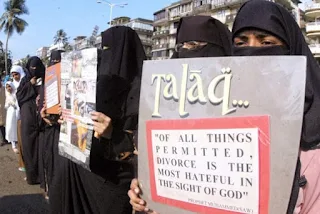 Invocations- Part 4
Invocations- Part 4
Alhamdulillah Summa Alhamdulillah,
it is purely by the grace of Allah that I am able to continue my sermon today
on the subject of “duahs”, more specifically the fourth sermon on the
subject of duahs as revealed to me by Allah (swt). What is amazing is
that these duahs can be found in the Holy Quran also, such duahs which were revealed to His
Messengers in the past, and there can even be some duahs among those which I shall mention which Allah revealed to
Hazrat Massih Ma’ud (as) also. But in this present era, Allah has also revealed
these duahs again to His
Khalifatullah.
Alhamdulillah, if I
am false, a liar, would Allah have revealed these duahs to me? What can my enemies say about these duahs? Are these satanic also? (God
Forbid). And if they label them as satanic, then their belief on the Holy
Quran also has been trampled and they are not worthy to read the Holy Quran. When
they humiliate me, in their stupidity, they trample at the same time the
teachings of the Holy Quran to dust.
 In the Holy Quran there is a duah wherein there is the mention:
In the Holy Quran there is a duah wherein there is the mention:
(O my Lord) Do not leave any non-believer on earth.
Through this duah, we understand that people in whose destinies have been
inscribed infidelity (disbelief), they would not be able to escape from this
(i.e. this condition of disbelief, and the subsequent punishment). But we need
to understand this duah, that it is
not a duah to exterminate all
infidels, for it were so, then how people could ever have become Muslims today?
Verily it means that (O Lord) all people in
whose destinies have been written that they are disbelievers, remove them from
this world. And this duah was truly
invoked by Hazrat Nuh (as). Now, these infidels can produce disbelieving
children like themselves. Therefore, it would be best (if Allah were) to remove
them. This was the duah of Hazrat Nuh
(as).
So, in my case, in my situation, when the
so-called defenders of the Nizam-e-Jamaat acted like infidels on the
subject of the divine messages which I am receiving, Allah (swt) showed me this
duah:
Rabbij
alni Ghaleban ala Ghayri.
O my Lord, give me victory over those who are
strangers to me.
And afterwards, there is this second revelation
which showed my victory and the acceptation of my duah by Allah.
Wajalni
Ghalebatan fid-Dunya wad-Deen.
Give me victory in mundane affairs as well as
spiritual affairs.

.jpg)

















